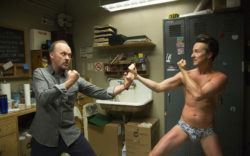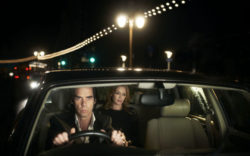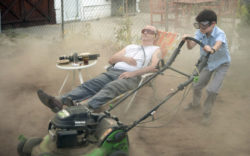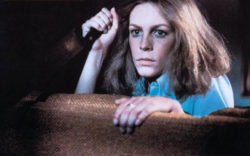BOYHOOD (R) The best kind of art is subtly transformative. Focusing on movies and novels in particular, you don’t even realize that a profound change is occurring inside you as you watch or read, because you’re involved in the narrative and in the lives of the characters who make the story come alive. You’re embedded in the beauty of fiction and how it relates to the everyday.
Director/writer Richard Linklater’s latest release, Boyhood, is this year’s most critically acclaimed independent movie and the Texas-based filmmaker’s finest work to date. There’s good reason for the hype. It’s a remarkable, daring and quietly powerful experience, one that isn’t easy to shake off afterward. Boyhood is a coming-of-age story and a rather simple one that follows the life of six-year-old Mason (Ellar Coltrane) through his early youth and up to the age of 18. Mason lives with his mother Olivia (Patricia Arquette) and his sister Samantha (Lorelei Linklater, the director’s daughter) and frequently sees his father Mason Sr. (Ethan Hawke), who’s divorced from Olivia. Linklater focuses on many of the ups-and-downs we’ve seen before in movies, like Mason’s travails at school, his interest in girls and his sometimes complicated family life, particularly dealing with Olivia’s difficult relationships with various men.
But you’ve never seen it done quite like this. Beginning in 2002 and ending in 2013, Linklater filmed his actors for a few days each year while in between projects. Although the movie is only 165 minutes (and certainly doesn’t feel like it), the narrative trajectory moves like an intimate emotional odyssey. We watch and experience the subtle physical changes in the actors as they age, and it’s delightful and jolting to see how Mason deals with the choices in his youth and beginning of adulthood while always faced with the unknowability of his future. Many filmmakers (think Orson Welles and Bela Tarr, among many others) have obsessed on how the camera can convey the passage of time in a meaningful way. Linklater has long dealt with the idea in many of his movies, but never this ambitiously. What makes his accomplishment brilliant, though, is how loosely Linklater directs and the seemingly effortless performances (Arquette is particularly memorable and excellent). Like all of Linklater’s movies, Boyhood is warm, perceptive and thoroughly realistic, far removed from current mainstream cinema. It’s a special movie that grows inside you like great art should.
Derek Hill
Like what you just read? Support Flagpole by making a donation today. Every dollar you give helps fund our ongoing mission to provide Athens with quality, independent journalism.










